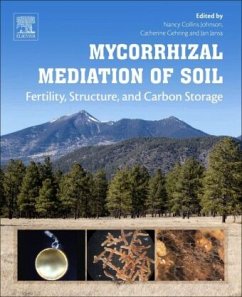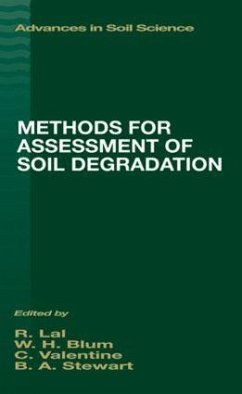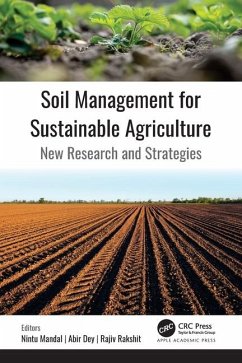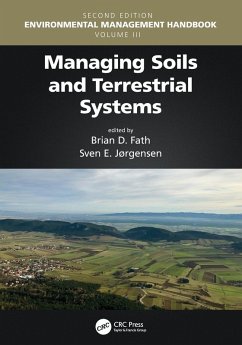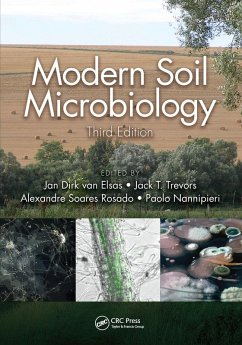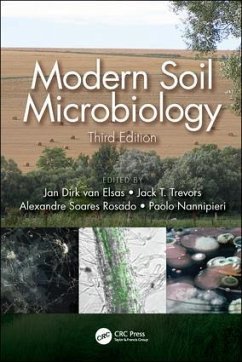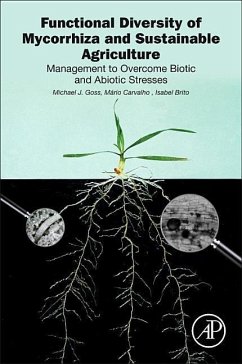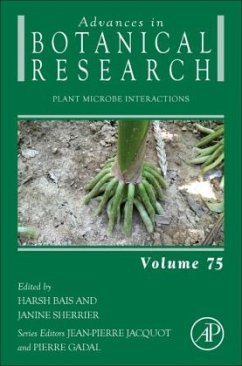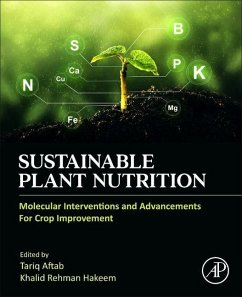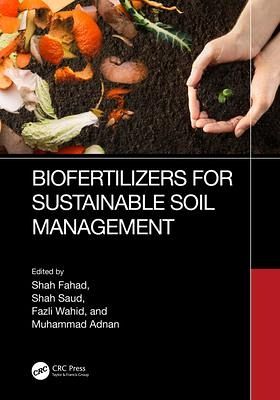
Biofertilizers for Sustainable Soil Management
Versandkostenfrei!
Versandfertig in 6-10 Tagen
144,99 €
inkl. MwSt.
Weitere Ausgaben:

PAYBACK Punkte
72 °P sammeln!
The alkaline calcareous nature, high pH, salinity, heavy metals pollution, and low organic matter content of soils in many parts of the world have diminished the soil fertility and made essential nutrients unavailable to crops. To cope with the poor availability of soil nutrients, improve soil health, and feed the fast-growing global population, the farming community is using millions of tons of expensive chemical fertilizers in their fields to maintain an adequate level of nutrients for crop sustainability as well as to ensure food security. In this scenario, the exploitation of biofertilizer...
The alkaline calcareous nature, high pH, salinity, heavy metals pollution, and low organic matter content of soils in many parts of the world have diminished the soil fertility and made essential nutrients unavailable to crops. To cope with the poor availability of soil nutrients, improve soil health, and feed the fast-growing global population, the farming community is using millions of tons of expensive chemical fertilizers in their fields to maintain an adequate level of nutrients for crop sustainability as well as to ensure food security. In this scenario, the exploitation of biofertilizers has become of paramount importance in the agricultural sector for their potential role in food safety and sustainable crop production. Bearing in mind the key importance of biofertilizers, this book examines the role of biofertilizers in sustainable management of soil and plant health under different conditions of the changing climate. Finally, it provides a platform for scientists andacademicians all over the world to promote, share, and discuss various new issues, developments, and limitations in biofertilizers, crops, and beneficial microbes.
Salient Features:
Mainly focuses on the role of biofertilizers in managing soils for improving crop and vegetable yields as a substitute for chemical fertilizers.Highlights the valuable information for the mechanism of action, factors affecting, and limitations of biofertilizers in the wider ecosystem.Presents a diversity of techniques used across plant science.Designed to cater to the needs of researchers, technologists, policy makers, and undergraduates and postgraduates studying in the fields of organic agriculture, soil microbiology, soil biology, soil fertility, and fertilizers.Addresses plant responses to biofertilizers.
Salient Features:
Mainly focuses on the role of biofertilizers in managing soils for improving crop and vegetable yields as a substitute for chemical fertilizers.Highlights the valuable information for the mechanism of action, factors affecting, and limitations of biofertilizers in the wider ecosystem.Presents a diversity of techniques used across plant science.Designed to cater to the needs of researchers, technologists, policy makers, and undergraduates and postgraduates studying in the fields of organic agriculture, soil microbiology, soil biology, soil fertility, and fertilizers.Addresses plant responses to biofertilizers.





